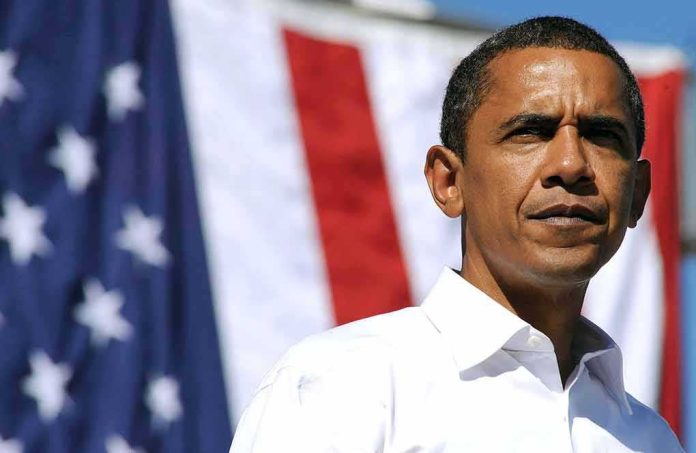
When a former president turns his back on the progressive front-runner he once would have championed, the ground beneath the nation’s most watched mayoral race suddenly feels unstable—and everyone wants to know why.
Story Snapshot
- Barack Obama refuses to endorse Zohran Mamdani, the progressive Democratic nominee for NYC mayor, despite a history of supporting prior candidates.
- Mamdani’s stunning primary victory over Andrew Cuomo signals a dramatic shift in the city’s political landscape.
- Obama’s silence reveals deepening rifts inside the Democratic Party as the general election nears.
- The outcome of this race could redefine national strategies for both progressives and centrists in urban politics.
Obama’s Silence Speaks Volumes as Election Day Approaches
Barack Obama’s refusal to endorse Zohran Mamdani has become the defining subplot of the 2025 New York City mayoral campaign, leaving political operatives and everyday voters alike wondering what message the Democratic Party’s most influential figure is sending. Obama’s endorsement once served as a golden ticket for Democrats seeking citywide office, including his vocal support for a previous, more centrist NYC mayor. Now, his conspicuous non-endorsement of Mamdani, a self-described democratic socialist, is fueling speculation about the direction and unity of the party just as voters prepare to cast their ballots.
Mamdani’s primary win over Andrew Cuomo, the comeback-seeking former governor, shocked seasoned political observers and upended assumptions about what’s possible in New York City politics. Cuomo’s defeat by a candidate running unapologetically to the left not only splintered the party but also emboldened progressives who have long felt sidelined by establishment power brokers. Yet, as the November 4 election looms, even the most energized Mamdani supporters acknowledge that Obama’s absence from the campaign trail isn’t just symbolic—it’s strategic, and possibly consequential.
The Roots of a Political Earthquake: How We Got Here
Eric Adams’s fall from grace, triggered by a federal indictment and subsequent withdrawal from the race, cracked open the Democratic primary, making room for a contest between the old guard and the insurgent left. Mamdani seized the moment, rallying voters disillusioned by establishment politics and promising sweeping reforms on housing, policing, and public spending. Cuomo, sensing a vacuum, attempted a comeback but failed to capture the city’s shifting mood. The result: a fractured Democratic Party, a surging progressive movement, and an independent bid from Cuomo that now threatens to split the vote further.
OUCH! ABC reports Obama called Zohran Mamdani to “praise his campaign” but still won’t endorse him. pic.twitter.com/CtE0D4rQIX
— Breaking911 (@Breaking911) November 3, 2025
Ranked-choice voting in the primary gave progressives an edge, but the general election—first-past-the-post—presents fresh challenges. With Republican nominee Curtis Sliwa trailing and the Democratic base divided, the city’s political future hangs in the balance. Obama’s reluctance to endorse, juxtaposed against his previous support for more moderate mayors, amplifies the tension between the party’s competing wings.
Power, Perception, and the Stakes for NYC and Beyond
Within the Democratic Party, Mamdani’s rise has sent shockwaves through traditional power structures. Local unions, advocacy groups, and national figures jockey for influence as the city’s electorate demands more than business-as-usual. Mamdani’s grassroots campaign, built on promises of social and economic transformation, stands in stark contrast to Cuomo’s appeals to moderation and experience. Meanwhile, Curtis Sliwa courts voters weary of progressive rhetoric, focusing his campaign on public safety and traditional values.
Obama’s decision to withhold his endorsement is widely interpreted by analysts as a calculated move—one that seeks to avoid alienating centrist voters while acknowledging the unpredictable energy animating the left. The former president’s influence extends well beyond New York, and his silence is a signal to party insiders nationwide: the Democratic coalition is in flux, and its future is up for grabs.
Polls, Momentum, and the Unanswered Question
Recent polling shows Mamdani holding a commanding lead, with margins of 16–25 points over Cuomo, while Sliwa remains in a distant third place. Early voting numbers suggest unprecedented turnout, a clear sign of heightened public interest and possibly of deeper polarization. Both Mamdani and Cuomo are downplaying poll numbers, each insisting their respective bases will defy expectations on Election Day.
Political experts remain divided. Some see Mamdani’s surge as emblematic of a new era, driven by genuine grassroots enthusiasm and a rejection of establishment politics. Others caution that without establishment buy-in, including Obama’s blessing, progressive governance could face gridlock. What’s certain: the outcome of this contest will ripple far beyond New York, shaping how Democrats approach urban elections and the delicate art of coalition-building for years to come.
Sources:
2025 New York City mayoral election
Where NYC polls stand 2 days before election day
NYC Board of Elections – Elections

